Gender
Gifty Anti inspires public with ‘Fifty Nuggets @ 50’
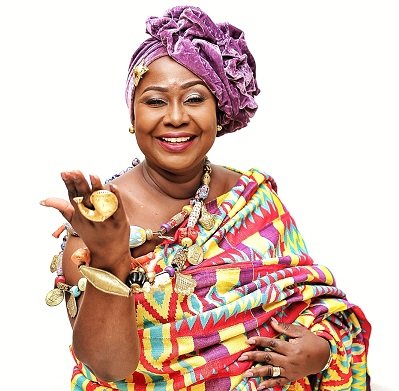
Celebrated Broadcast journalist, Gifty Anti has documented her life experience in a book titled “Fifty Nuggets @ 50” and was launched in Accra last week.
The book, talks about the seasoned journalist’s tussle and bustle, success and failures of her life chronicled from childhood to the 50 years of her existence.
The 282 paged book consists 50 life tips scripted by Gifty Anti to serve as a medium of encouraging, inspiring and strengthening the hopeless and feeble to persist in life, because there was always light at the end of the tunnel.
Divided into chapters, some of the nuggets expatiated in the book include ‘Yes, I failed’, ‘The Professional frienemies’, ‘My feminism and my religion’, ‘My potential love affair’, ‘My singleness’, ‘Trusting a man’ and ‘Becoming a Mrs.’
Speaking to The Spectator, Gifty Anti said she had authored three books within a year, and these books were written to serve as a beacon of hope to the weary.
“The first book titled ‘A lot of Me’ was published in July 2019, followed by the second book ‘The Best of You’ in January 2020 and the third one ‘Fifty Nuggets @ 50’ was published in June 2020”, the multiple award winning journalist explained.
To point out the milestone of her age 50, she admonished all and sundry to own their failures and mistakes and avoid shifting blames on others for their downfall, and by so doing one could be assured of success.
“The book has emotional elements which could make one shed tears and laugh, as I explain and rebuts some rumours levelled against me in life”, she told The Spectator.
The renowned motivational speaker cautioned the youth not to compete among themselves but rather focus on their dreams and wait for God by trusting in the process of becoming great.
Gifty Anti, founder of The Girl in Need Foundation advised every home to get a copy of the book which sells on amazon and other online platforms in order to assist individuals to understand their own journey of life.
According to the veteran TV personality, mentors should tell more of their dark and sad sides of their story to people, because birthing of success stems out of some degree of failures.
Source: Ghanaian Times
Gender
Parents urged to provide moral guidance to help children transition to adulthood
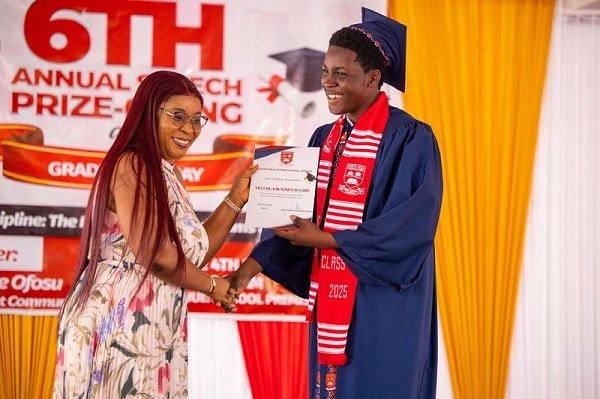
North Hill International School (NIS), a basic school situated at North Legon in Accra has held its 6th Speech and Prize-Giving Day with a call on parents and guardians to provide the needed moral guidance and support for children to become responsible and disciplined adults in society.
The Guest Speaker for the occasion, Mr Felix Kwakye Ofosu, Minister of State and Government Communication who made the call in a speech read on his behalf, said this stage was crucial for children to learn values that enable them become responsible members of the family unit, their immediate environment and the country at large.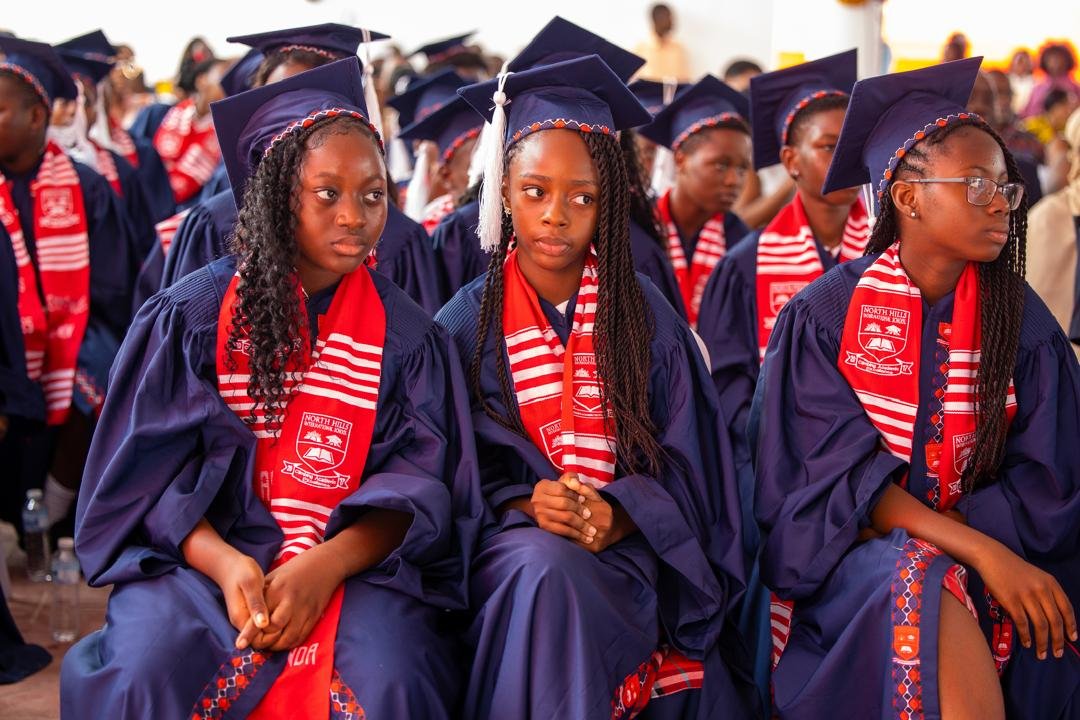
Themed: “Discipline- The bridge between dreams and reality” the event saw 36 learners in total graduating comprising primary and lower secondary.
Master Vielung Kwadwo Bagbin, son of Ghana’s Speaker of Parliament, Mr Alban Sumana Kingsford Bagbin, emerged overall best student.
Mr Ofosu said their formative stage was an age where good habits, behaviours and characters were built which lay a solid foundation for their lives.
In an address, the Principal of the School, Mrs Emma Coleman Opoku, said the school reaffirms its commitment to academic excellence as demonstrated by the outstanding performance of pupils in the 2025 Cambridge Checkpoint Examinations.
She described the outcome as result of tireless efforts from passionate teachers, the determination and diligence of pupils and the support of parents.
Over the years, she said, NIS has made remarkable strides in the Basic Education Certificate Examinations, consistently raising academic standards and producing outstanding results.
According to her, last year, the school recorded exceptional achievements including ten grade ones with two pupils attaining eight grade ones and another achieving six grade ones.
“Despite these successes, we have observed a decline in interest and enrollment in the GES curriculum,” she said.
The Principal indicated that, after careful examination and in light of current enrollment figures, the school has decided to suspend the GES curriculum temporarily.
On her part, the General Manager of the school, Mrs Bernice Adu Boateng, expressed gratitude to teachers for their dedication and professionalism and the invaluable role of parents which has brought the school thus far.
Come September, she said the school would roll out digital boards to complement the use of projectors and desktops in every classroom to infuse the use of technology to enhance facilitator-learner activities.
In a Global Perspective Project titled, “ Acting on Poverty and Inequality “, Year 7 pupils of the school raised an amount of GH₵17,530 to support the cause and donated used personal effects to Potter’s Village.
The Administrator and Human Resources Manager of the school, Mrs. Bertha Boamah Benin, expressed profound appreciation to companies and individuals that supported the event.
By Francis Cofie
Gender
Take control of your financial future …female students urged
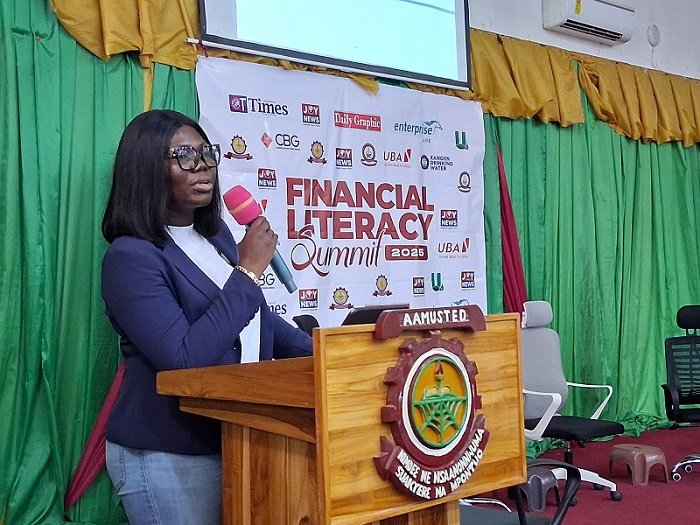
Mrs. Janet Acheampong Otoo, Treasurer of the Akenten Appiah-Menka University of Skills and Entrepreneurial Development (AAMUSTED), has urged young women to take control of their financial future by embracing literacy, confidence, and purposeful planning.
Speaking at the university’s Financial Literacy Summit over the weekend, she emphasized that “money is power” and that women must be empowered with the knowledge and skills to make informed financial decisions.
The summit, organised by the Student Representative Council, was held under the theme “Financial Fitness: Building wealth and securing your future.”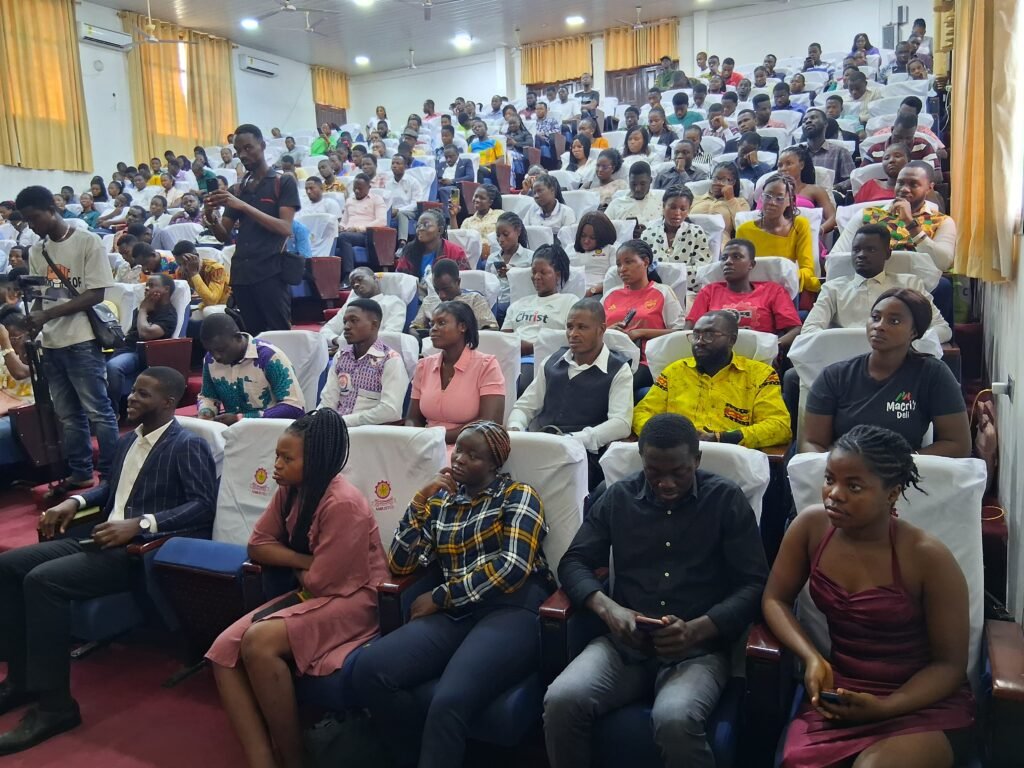
Mrs Acheampong Otoo explained that financial literacy was more than budgeting—”it encompasses saving, investing, and managing debt”.
However, she noted that many women still struggle due to a confidence gap that hinders their ability to create and follow effective financial plans.
“Financial independence is about freedom, confidence, and the ability to pursue your dreams,” she said. “As women, we have the power to shape our own futures and contribute meaningfully to society and family life.”
She encouraged female students to attend workshops, read widely, and avoid impulsive spending on beauty and lifestyle. “Every financial decision should align with your long-term vision,” she added. “Believe in yourself. Lead the charge.”
Joining the conversation, the Municipal Chief Executive of Sekyere South, Mr Evans Amo Twumasi, called financial literacy one of the most overlooked foundations in nation-building.
“In today’s world, the line between economic survival and financial freedom is drawn not by luck but by knowledge and discipline,” Mr Amo said. “Money may be finite, but knowledge is infinite—and financial discipline is the bridge between them.”
He stressed that financial fitness was not just about saving or spending, but understanding the value of a cedi, the cost of each decision, and the power of forward planning. With the right mindset and habits, he said, anyone can achieve economic resilience and long-term success.
Mr Amo urged students to embrace financial education as a tool for personal transformation and national progress. “The future does not belong to those who merely wish for wealth—it belongs to those who plan it, save it, and work for it,” he said.
He also called for policies that strengthen entrepreneurship and youth empowerment and encouraged students to respect money and use it with purpose.
Other speakers included Dr Evans Duah, Dr Prince Gyimah and Prof. Joseph Mbawuni, all lecturers at the University.
From Kingsley E. Hope






